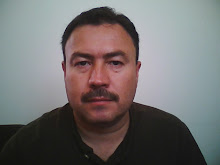While I was reading the
controversy against the Pelagians, I was thinking in a boxing fight, or wrestling,
or UFC fight, where Augustine and Pelagius were the fighters. Serious, I could
imagine the movie Rocky because both looks were very popular, famous theologians
and every body knows them. As Harmless said, “the two men shared a wide network
of aristocratic friends” (p. 378). Both
of them had different origin, Augustine belonged to the low class and Pelagius
was part of the Aristocracy. Augustine was a clergy and Pelagius was a lay; in
spited of all these, bot of them were contemporaries and very popular, both of
them were excellent philosopher and theologians and both were against the
Manichest, and Donatists. All the things around them look that both could be
good friends and be the heroes of that time, but not. As two boxing fighters,
they were growing separated and arrived to the moment when they had to fight
between themselves and see who is the best!
Also, while I was reading more
deeply about Pelagius and his doctrine I began to compare him with the
tele-preachers of this twenty first century or with Norman Vincent Peale the
father of the positive thinking, because he was offering a gospel where the men
could decide exactly all that they want, or the future is in their hands, or
they have the capacity to live without sin, etc. etc. Putting aside the
historical data of the controversy against the Pelagians, I want to go directly
to the topic I chose about the controversies between Augustine against
Pelagius. Harmless said that: “Augustine wrote a detailed commentary, On the Deeds of Pelagius (De gestis
Pelagii) trying to excuse his Palestinian colleagues and to analyze what he
perceived as Pelagius’s evasiveness and deceptions” (pp.379-380).
Pelagius wrote his treatise On
Nature and Augustine wrote his treatise On Nature and Grace, and there,
Augustine describing the Pelagians theology, Augustine talked about the
Pelagian teaching about the “sinlessness must exist, at least as a rethorical
possibility” (p. 400). Clearly Augustine wrote: “It is impossible for a human
being to be without sin” (p. 400). The second point about Pelagius here is:
“given his moral rigorism, was outraged by those who blamed the sin of Adam for
human sinfulness. He insisted that we do not inherit original sin; we imitate
the original sinners” (p. 401). Augustine talking about the sin of Adam said: “
Our nature has been weakened and changed through sin” (p. 402) Augustine also
expanded this point talking against the Adam descendants as weaker as him. The
last point here was “Pelagius argued for the possibility of salvation beyond
the borders (whether temporal or geographical) of Christianity” (p. 402).
Augustine argued that God in his justice will judge them according to their
facts, “by living rightly, even though it has not been tinged with any faith in
the Passion and Resurrection of Christ” (p. 402).


No hay comentarios:
Publicar un comentario